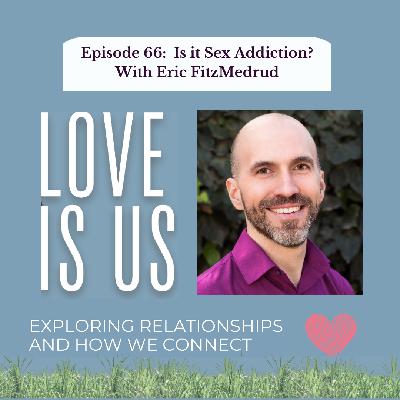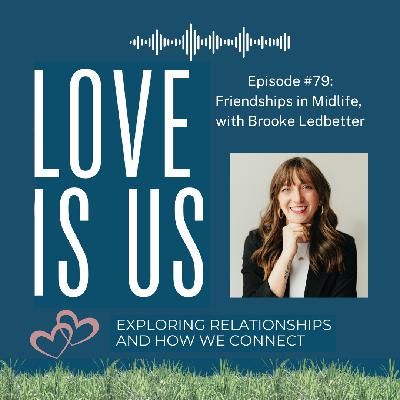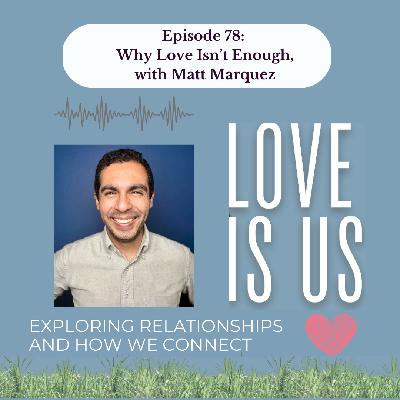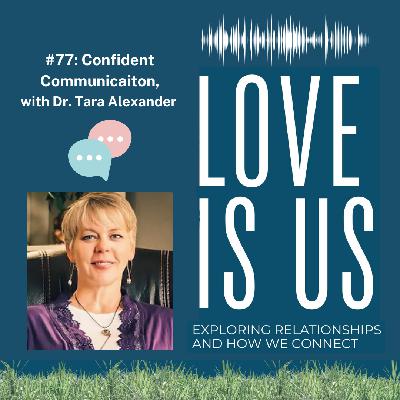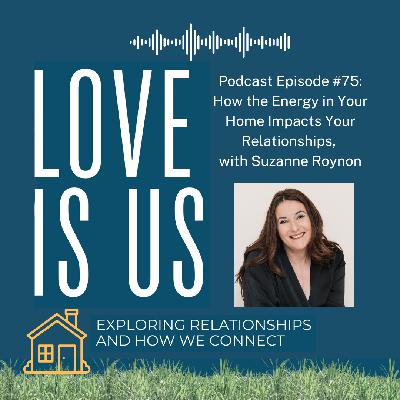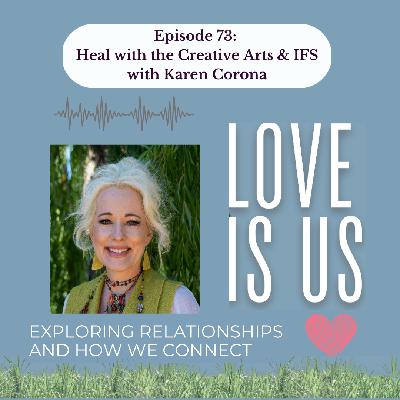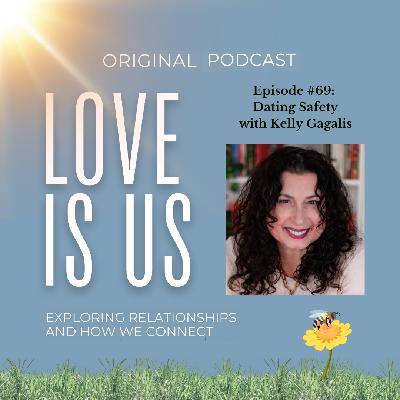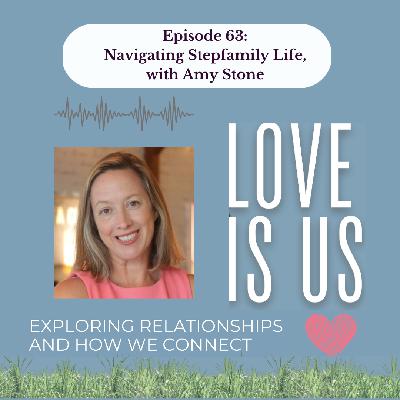#66: Is it Sex Addiction? With Eric FitzMedrud
Description
Do you suspect that you or someone you care about has a sex addiction? Sex addiction is a topic that is being discussed more often nowadays, but misunderstandings are common. Listen to this episode to learn more.
My guest today, Eric FitzMedrud, is a licensed psychologist who specializes in relationships and sexual issues. His specialty is helping men improve their sex lives by learning to regulate their emotions, removing sexual entitlement, and honing their sexual consent and negotiation skills. FitzMedrud is a member of the American Association of Sexuality Educators, Counselors, and Therapists. He has been published in an academic book an academic journal and has spoken at multiple conferences. He has also trained therapists and taught many graduate courses in psychology. FitzMedrud has a PhD in Clinical Psychology from the Institute of Transpersonal Psychology. He is polyamorous and bisexual, and lives with his wife of twenty-three years and his life partner of six years in San Francisco's East Bay area, California.
Learn more about Eric:
Website: https://www.drericfitz.com/
IG: https://www.instagram.com/drericfitz/
Book: A Better Man: A Guide to Consent, Stronger Relationships, and Hotter Sex
Learn more about Karin:
Website: https:www.drcalde.com
IG (relationships): https://www.instagram.com/theloveandconnectioncoach/
IG (psilocybin facilitation): https://www.instagram.com/wildwoodfacilitation/following/
TRANSCRIPT
Intro:
Karin: This is Love Is Us, Exploring Relationships and How We Connect. I'm your host, Karin Calde. I'll talk with people about how we can strengthen our relationships, explore who we are in those relationships, and experience a greater sense of love and connection with those around us, including ourselves. I have a PhD in clinical Psychology, practiced as a psychologist resident, and after diving into my own healing work, I went back to school and became a coach, helping individuals and couples with their relationships and personal growth. If you want to experience more love in your life and contribute to healing the disconnect so prevalent in our world today, you're in the right place. Welcome to Love Is Us.
Episode:
Karin: Hello, everybody. Today we're going to be talking about sex addiction. And this is a topic that other people have come to me wanting to talk about and I have turned them away. And that is because it is not without controversy, and we're going to get into why that is today. But it's really important to me that I bring you good information and not information that might be harmful. And I certainly want to bring you the best information, the most accurate information that I can. So I am really happy to have found my guest today. His name is Eric Fitz Medrud and he is a therapist specializing in relationship and sexual issues, and he's based in the San Francisco Bay Area, and he is also a speaker. He is a member of the American association of Sexuality Educators, Counselors and therapists. He's been published in academic books and journals, and he also has a book called the Better Man, a guide to consent, stronger relationships, and hotter sex. And he was just really nice to talk with as well. And I really think he knows his stuff. So there's just one thing that I want to leave you with before we start, and that is we didn't talk too much about a term called out of control sexual behavior, and that is an alternative term to sex addiction. And I'm just going to give you quick definition here that I found online. It's from Douglas Braun Harvey, who I believe is kind of the pioneer in calling it this and describing it. He says it is a sexual health problem in which an individual's consensual sexual urges, thoughts, and behaviors feel out of control. And he saw it as a sexual problem, not a sexual disorder or illness. But again, we're going to get into that in this episode. I hope that you get something out of it, and I hope that you will leave me a review that really helps my podcast get out to more people. So I would super, super appreciate it. Anyway, thanks for being here. And here we go. Welcome, Eric.
[03:09 ] Eric: Thank you for having me. I'm really glad to be here.
[03:12 ] Karin: Tell us where you are in the world.
[03:15 ] Eric: I am in San Francisco's East Bay Area, right next to the East Bay hills, which are still green.
[03:25 ] Karin: That's a familiar neck of the woods for me. I spent, really, the first half of my life generally in that area. But how long have you been there?
[03:37 ] Eric: I've been living in the Bay Area since 2002, and I was drawn here for grad school.
[03:46 ] Karin: And then you just never left?
[03:47 ] Eric: I never left. I had children. And like a lot of people, my nomadic days came to a sudden and screeching halt.
[03:56 ] Karin: Right. That happens with kids.
[03:58 ] Eric: It does.
[03:59 ] Karin: Oftentimes. Not all the time, but often. So tell us what you do for work.
[04:04 ] Eric: So I'm a psychotherapist in private practice, I work with individuals and couples, primarily heterosexual and homosexual couples, a few lesbian couples here and there, and some work with non binary trans individuals. And I primarily focus on sex and relationship issues.
[04:23 ] Karin: And what drew you to doing that kind of work?
[04:26 ] Eric: Having some of my own challenges in sex and relationship issues. So, you know, I grew up a Catholic. I experienced a lot of sexual shame as a young man. I also had the experience of a lot of relationship turmoil. And my parents, neither of them, they broke up very early in my life, and then they both had a lot of transitory relationships. And I was really clear that I wanted to do something different with my life. And getting into and staying in a relationship was the easier part for me. But figuring out how to navigate my own sexual desire, how to navigate monogamy for the many years that I tried to do that 18 of our years of marriage I was trying to do, that was very difficult for me. And so as I entered grad school around psychology, I started taking, you know, every course that I could here and there about sexuality to try to learn more about what was going on inside of me, what was going on inside of a lot of the men that I knew in my life. And that eventually created a specialty for me that showed up in my practice and continued to fertilize my own personal development around sexuality and relationships.
[05:55 ] Karin: And I just want to call out, because you said that you struggled with monogamy for many years, and so you then decided to try something else. Isn't that right?
[06:06 ] Eric: I did. I mean, when I say I struggled with monogamy for many years, I don't mean that I was having chronic, constant affairs, but I did have. I did have two affairs very close back to back in the 2002, 2003 time, shortly after I got into grad school, I then really went into a concerted effort to try to maintain my monogamy. I'm generally a very ethical person. Ethics are important to me. Honesty is very important to me, and I'm a very terrible liar. So I don't do affairs skillfully, which, all in all, it was a pretty good weakness to have. And it was several years later that I found myself in my third affair. And most of that time, it's not like I was thinking of myself as having difficulty in the monogamy. But in retrospect, I didn't realize what I wasn't integrating into myself and into my relationship. And so, yeah, after that third affair, I talked with my wife. We considered a lot of different options. I suggested a couple of different things at that point. I said, perhaps what we should do is leave the Bay Area, respecialize in my practice out of sexuality and into something else, and try to maintain the monogamy in a different way outside of community that included non monogamous people, and outside of service in my practice that serve non monogamous people. And bless her in her low levels of jealousy, ease in repair, and just being a graceful and kind human being, she said, but you're polyamorous, so we should probably try that. It took a lot of preparation and work up to it, but after about a year and a half in that conversation, we tried polyamory, and we haven't gone back since then. So it's been about eight and a half, almost nine years since we began that process.
[08:10 ] Karin: Yeah. Thank you for shar

